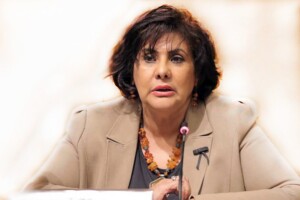Sudan economist: Clients can sue banks for illegal deductions
Sudanese consumers should be aware of their rights, and are entitled to sue commercial banks if they deduct any amount from a client’s account without advance warning, which is illegal, economic and political analyst Hafiz Ismail cautions.
 Current Sudanese Pound banknotes (File photo: RD)
Current Sudanese Pound banknotes (File photo: RD)
Sudanese consumers should be aware of their rights, and are entitled to sue commercial banks if they deduct any amount from a client’s account without advance warning, which is illegal, economic and political analyst Hafiz Ismail cautions.
Reacting to reports that some banks, including the Bank of Khartoum, levy a charge of SDG 10 for transactions conducted via the bank, Ismail says that this practice is strictly illegal.
Ismail points out: “The relationship between the bank and the customer in Sudan is not governed by any system, so it is necessary to have bodies that monitor the services provided by banks and their value.”
As a caveat, Hafiz highlights that after years of dwindling confidence in banks and the government, 80 per cent of commercial transactions in Sudan take place outside banks.
Liquidity
This has historically led to liquidity problems and a shortage of cash, which consecutive governments addressed by printing new currency. Most recently, the Central Bank of Sudan (CBoS) announced this month that it will be issuing a new note of SDG 1,000. In reactiuon to that news, Hafiz commented that the decision to mint the new SDG 1,000 denomination reflects the rising inflation in the country and the continued erosion of the purchasing power of the Sudanese pound, despite a relatively stable exchange rate.
Sudanese Pound
The socioeconomic detritus of the 30-year dictatorship of Al Bashir, who has also been on trial in Khartoum for currency offences, has left Sudan’s economy in ruins, with the value of the Sudanese Pound (SDG) at all-time lows against international currencies.
In its dying throes, the Al Bashir regime desperately ordered the printing of new currency denominations of SDG 100, SDG 200, and SDG 500 by the Central Bank of Sudan in an attempt to solve the chronic public and commercial liquidity crisis.
In the years after, concerns about the rising inflation grew, strengthened by Sudan’s importing of most basic needs, the budget deficit, and the dramatic increase in salaries financed through the printing of banknotes, which led to a further devaluation of the Pound.
Recently, the Sudanese Pound plunged even further, and the US Dollar traded for SDG550 on the parallel forex market. United Nations reports indicate that the value of the local currency has decreased 20 times (2,000 per cent) during the past five years.
Hyperinflation
In 2019, banks across the country limited cash withdrawals, which intensified in the run-up to the overthrow in the Al Bashir regime in April 2019. This resulted in long queues of customers trying to withdraw a little cash from the banks. Public trust in the banking system dwindled, so traders and the public took to keeping their money at home, rather than deposit it into banks.
The socioeconomic detritus of the 30-year dictatorship of Al Bashir, who has also been on trial in Khartoum for currency offences, has left Sudan’s economy in ruins, with the value of the Sudanese Pound (SDG) at all-time lows against international currencies.
In its dying throes, the Al Bashir regime desperately ordered the printing of new currency denominations of SDG 100, SDG 200, and SDG 500 by the Central Bank of Sudan in an attempt to solve the chronic public and commercial liquidity crisis.
In the years after, concerns about the rising inflation grew, strengthened by Sudan’s importing of most basic needs, the budget deficit, and the dramatic increase in salaries financed through the printing of banknotes, which led to a further devaluation of the Pound.
In attempts to revitalise the currency, in February 2020, the government unified the Sudanese Pound exchange rate in an attempt to halt the ongoing inflation. At that time, the official exchange rate for 1USD was adjusted from SDG55 to the prevailing parallel market rate of SDG375.
Most recently in March this year, the Central Bank of Sudan stopped issuing the indicative price, after it again announced the unification of the Sudanese Pound exchange rate to allow for the determination of currency exchange rates without interference from the Central Bank. Foreign exchange dealers on the parallel market reported that the Dollar exchange rate at the time was SDG560.
United Nations reports indicate that the value of the local currency has decreased 20 times (2,000 per cent) during the past five years.











 and then
and then